IDRS, SUPPORT RATING AND SUPPORT RATING FLOOR
The upgrade of DBK's Long-Term IDRs and revision of the Support Rating Floor (SRF) to 'BBB' reflects Fitch's view of an increased probability that the bank will be supported by the government of Kazakhstan (BBB/Stable), in case of need.This view is based on an extended record of capital and funding support from the state which has intensified in recent years, including in the challenging operating environment due to the Covid-19 pandemic. The bank has received an equivalent of USD1 billion of state capital contributions since 2013 (about 10% of average equity annually) and state sources now account for over a third of its total funding. Capital support is channelled by the government through DBK's immediate parent, JSC National Management Holding Baiterek (BBB/Stable), in targeted transfers, which mitigates the risks of potential delays in receipt of support, in Fitch's view.
DBK's important policy role in fostering development of non-extractive economic sectors and a special legal mandate, together with the bank's long-term and strategic government ownership underpins our expectation that the bank will be supported.
Our assessment of the sovereign’s ability and propensity to support the bank also considers the low cost of potential support relative to Kazakhstan's available resources (DBK’s third-party wholesale debt was 4% of sovereign FX reserves at end-3Q20), some guarantees on market debt from Baiterek, as well as potential adverse reputational and economic consequences of not supporting the bank.
The 'F2' Short-Term IDRs of are the higher of the two possible options corresponding to the Long-Term IDR of 'BBB' under Fitch's Bank Rating Criteria, and reflect our view that the provider of support has a strong liquidity position and would be willing to support the bank in case of need.
Capital support from the state may be required given DBK's high-risk business model of providing longterm project financing (including to greenfield projects), often with long grace periods. As assessed by Fitch, impaired loans (Stage 3 and purchased or originated credit-impaired loans under IFRS9) were equal to 8% of gross loans at end-3Q20x and were 0.8x reserved. Stage 2 loans were a sizeable 16% of gross
loans, and some of these exposures may be transferred into the Stage 3 category in the medium term, in our view. Coupled with some other balance sheet problems, total high-risk assets made up KZT241 billion, or 50% of Fitch Core Capital (FCC) at end-3Q20.
Credit risk is mitigated by provision of guarantees from state-owned holdings on some Stage 2 loans, as well as possible government support to some of these borrowers given their moderate systemic importance. USD-denominated loans have been partly replaced by those in local currency which also reduces FX risk in Kazakhstan's volatile environment.
As a development bank, DBK provides loans at below-market rates which translates into a tight net interest margin (2% in 9M20). Pre-impairment profit (2% of average gross loans in 9M20) provides only limited loss absorption capacity. Therefore, DBK relies on annual capital support from the government to support its capital ratios and further loan growth. The FCC ratio stood at 16% of risk-weighted assets at end-3Q20, which provides a moderate buffer against an uptick in the cost of risk.
The bank is mostly funded by wholesale debt (loans from foreign banks and Eurobonds) which comprised 63% of total liabilities at end-3Q20, while cheap state-related funding made up 35%. DBK's healthy liquidity position well exceeded planned wholesale debt repayments in 2021.
DBK's senior unsecured debt ratings are equalised with the IDRs.
RATING SENSITIVITIES
Factors that could, individually or collectively, lead to positive rating action/upgrade: DBK's IDRs could be upgraded following the upgrade of the sovereign rating.Factors that could, individually or collectively, lead to negative rating action/downgrade:
A downgrade of the IDRs would stem from the downgrade of the sovereign rating.
Negative rating action and a renewed widening of the notching between the bank and the sovereign could also follow a marked weakening of DBK's policy role or association with the sovereign. However, this is not currently viewed as likely by Fitch.












